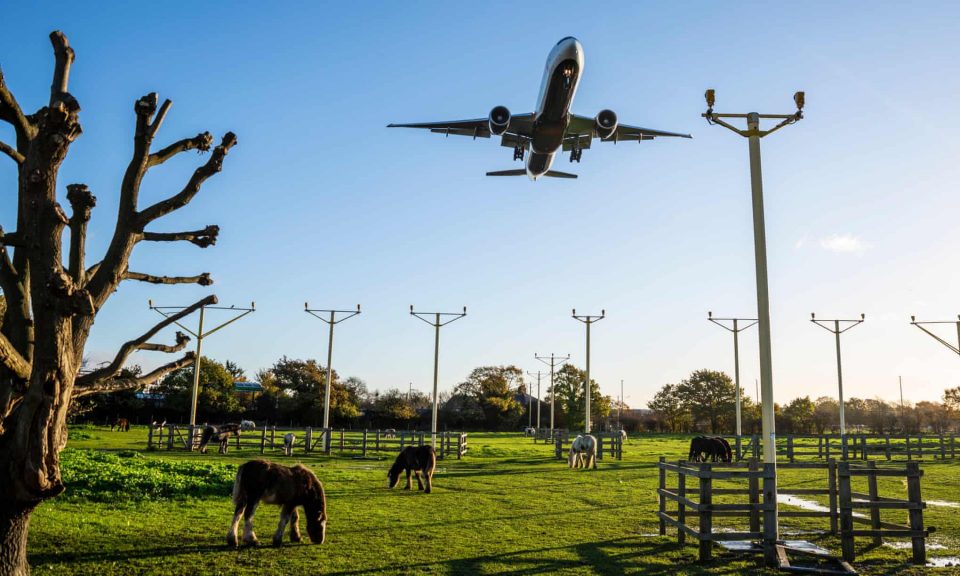I can hardly wrap my head around the fact that I’m penning this, yet the evidence points overwhelmingly in one direction. After a decade and a half defined by environmental destruction, it may have seemed unlikely for the Labour party to present anything short of a better option. However, when it comes to ecological matters, this administration is proving to be even worse than the Conservatives.
The last prime minister to vocally prioritize growth above all else and to belittle dissenters, was Liz Truss. She branded those of us advocating for the protection of our environment as an “anti-growth coalition,” “voices of decline,” and “enemies of enterprise,” claiming we “fail to grasp aspiration.”
Now, Keir Starmer seems to have adopted her rhetoric and taken it further. Those who question government strategies that may boost GDP—regardless of the environmental devastation they may cause, including the proposed expansion of Heathrow, Gatwick, Luton, and Doncaster Sheffield airports—are labeled as “nimbys wasting time,” “extremists,” and “obstructionists”, engaged in “self-righteous virtue-signaling.”
These same individuals might send “commendations to climate activists” whose legal actions thwarted the construction of a third runway at Heathrow in the Court of Appeal. Or they might argue that the expansion of Heathrow should be halted because “nothing is more critical than addressing the climate emergency.” Wait, that was Starmer in 2020—the leader you supported, not the new incarnation that channels the most unsavory aspects of recent Tory leadership.
Now, his chancellor, Rachel Reeves, claims that growth “takes precedence” over other concerns, including the government’s environmental obligations. The choice of verb is unfortunate. The government’s current discourse shocks with its similarity to the rhetoric of incarcerated figures: narrow-minded obsession, slogans, and disparagement replace intricate and thoughtful policy-making.
Enhancing east-west rail connections and developing additional reservoirs and offshore wind farms—as Reeves outlined in her speech—makes sense. Moreover, there is an urgent need for new, genuinely affordable housing, alongside systemic reform in the housing sector. However, the climate emergency renders any justification for expanding airports or constructing new major roadways, like her Lower Thames Crossing, completely untenable. The “sustainable aviation fuels” the government hopes to depend upon are unrealistic and unlikely to ever be produced on a large scale.
Reeves dismisses environmental concerns reminiscent of Trump, arguing that opposition to projects like the Heathrow third runway stems from fears of “potential carbon emissions in the next 20 years.” But there is no “potential” about it—it is certain. Yet, why worry about the future consequences when it won’t impact her in the short term?
Furthermore, this implies such initiatives won’t yield growth for at least 20 years. In fact, existing evidence suggests that expanding airports might not produce economic benefits at all. Yet even if they did, and that growth were allocated to build new hospitals (a significant if), we would have to endure a wait of 20 years or more for those benefits. Is this truly the proposed policy?
A better alternative could be to construct hospitals immediately. Given their status as major employers and their ability to assist individuals in returning to work, hospitals are more likely than airports to stimulate growth while simultaneously addressing pressing needs. However, a comprehensive plan for hospital construction has become a lower priority for the government compared to airport expansions. This perpetuates the perception that when Reeves and Starmer utter “growth,” they are simply catering to the interests of voracious lobby groups.
Nevertheless, let us temporarily accept their assertions. Let’s consider that economic growth should be regarded as the supreme national objective. Let’s overlook economist Simon Kuznets, who pioneered GDP’s development, warning that “the welfare of a nation can barely be inferred from a measure of national income.” If such is the prevailing agenda, Starmer and Reeves ought to review a recent report released not by Extinction Rebellion, but by the Institute and Faculty of Actuaries. The report cautions that without prompt and robust action, climate breakdown may shrink the global economy by 50% between 2070 and 2090.
Essentially, if Heathrow’s third runway is constructed, by 2040 it may or may not yield a minor increase in GDP. Yet, if the report’s warning holds weight, it could also lead to an extensive economic collapse shortly thereafter. Starmer asserts that those against such proposals have “hampered our nation’s progress.” However, if that “progress” entails a reckless dash toward disaster, perhaps a pause – and a shift in focus – would be beneficial.
Yet no, every aspect must be sacrificed at the altar of GDP. For instance, while chicken production facilities (massive metal structures housing thousands of birds) are deteriorating the health of the Wye and other rivers, Steve Reed, the environment secretary, contends that securing planning permission for these facilities should be simplified. Planning remains the only effective point of intervention; once the factories are established, the nitrates and phosphates they produce inevitably devastate the rivers nearby. They are likely to inflict far more economic damage than they create, as they annihilate local economies relying on tourism and hinder more sustainable developments due to nutrient overload. In this and various other domains, the government is undermining its own water commission, which many consider one of the few signs of environmental progress since the Conservative party took power.
Recently, in a shocking act of environmental regression, Starmer sank the climate and nature bill, which aimed to align government policy with international commitments. Labour instructed its MPs to speak the bill out of time and threatened disciplinary action against those who supported it.
The assault on regulatory agencies has reached even greater heights than Truss’s approach. As organizations like the Environment Agency, Natural England, the Health and Safety Executive, and the UK Reach chemicals agency degrade due to a disastrous mix of underfunding and political hostility, Reeves asserts that the role of regulators is to “promote growth.” However, that is not their purpose. Their mission is to safeguard us, irrespective of capital’s demands. After 15 years of deregulation fueled by budget cuts and political pressure, the outcomes include the destruction of our rivers, the degradation of our soil, a catastrophic decline in wildlife, air pollution and noise levels exceeding safety standards, and a toxic load whose effects on human health we can only begin to understand. How does any of this enhance our quality of life?
But never mind, let’s reduce human existence and the natural world to mere monetary terms. GDP, a statistic that encompasses significant harms alongside benefits, must take precedence over all else. Consequently, the government will have figures to celebrate, even if they mirror a deterioration in our genuine well-being—our true prosperity.
While this new administration may be more capable than Truss’s regime, after merely six months in office, they have become equally fearsome in their chilling fanaticism and resistance to dissent. Is this what you voted for?
George Monbiot is a columnist for The Guardian.


